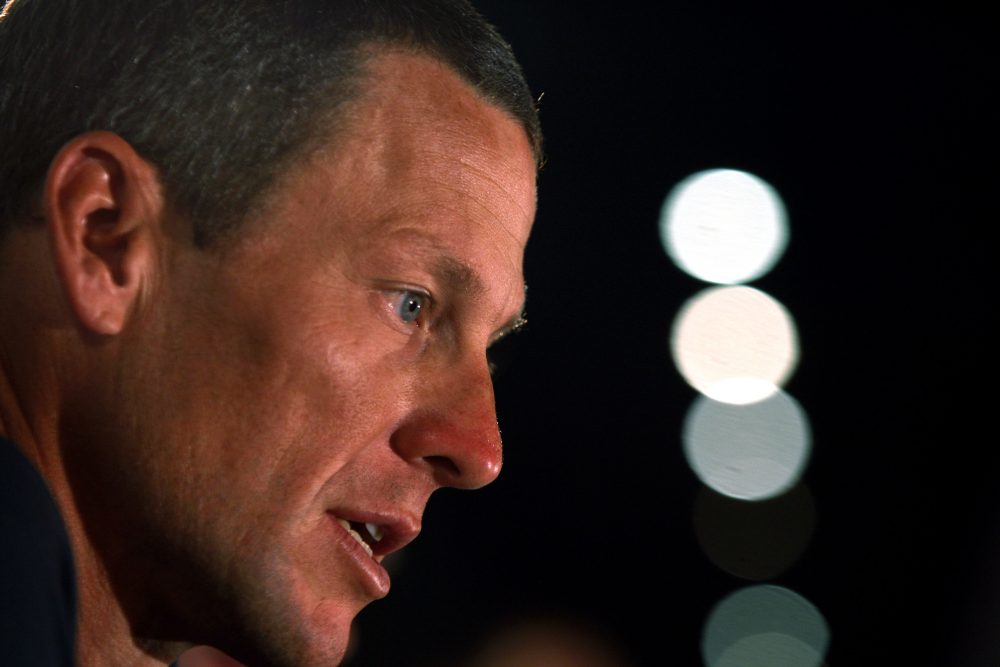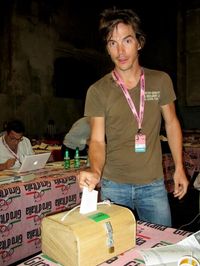Lance Armstrong tries to block LeMond, Andreu and USADA report from upcoming $100m trial
Armstrong's lawyers try and block critics from testifying

Lance Armstrong speaks at a press conference.

Lance Armstrong's lawyers are pushing to block Greg LeMond, Betsy Andreu and the USADA report from an upcoming $100 million federal trial in November.
The Texan rider, who was stripped of his seven Tour de France titles for doping, is battling the US Justice Department. The government says he and the team defrauded taxpayers using US Postal Service sponsorship money, $32.3 million from 1996 to 2004, to dope and win races.
Lawyers for both sides filed a list of potential witnesses they could call in the upcoming trial. And they are arguing with the judge which ones can testify. Armstrong does not want to see three-time Tour winner Greg LeMond, the wife of his former team Frankie Andreu, Betsy Andreu, the US Anti-Doping Agency (USADA) report that uncovered his doping, and evidence from a 2014 Aspen car incident.
>>> Expert witnesses branded 'not competent to testify' in $100m Lance Armstrong lawsuit
USA Today printed some of the documents filed with the judge by the lawyers.
"While LeMond is well-versed in the prevalence of doping throughout the sport during the relevant time period (1997-2004) and still owns the record for the fastest time trial in Tour de France history, he has no personal knowledge regarding Armstrong, the USPS sponsorship agreement, or invoices submitted for sponsorship payments," Armstrong's lawyers said.
"[Betsy Andreu] has been and remains a long-time vocal critic of Armstrong, appearing on television whenever possible to criticise him. She has no relevant testimony to offer and she should not be permitted to testify in this case, or use it as a soapbox for impugning Armstrong's character."
The latest race content, interviews, features, reviews and expert buying guides, direct to your inbox!
Under the False Claims Act, penalties can reach three-times the amount defrauded, meaning the government could win $96.8 million.
Former U.S. Postal Service team-mate Floyd Landis blew the whistle on Armstrong in 2010. His testimony led to the FDA and USADA cases.
>>> Lance Armstrong to face trial in $100m lawsuit in November
USADA's Reasoned Decision uncovered years of doping and led to Armstrong losing the Tour titles he had won from 1999 to 2005.
Armstrong’s lawyers want the judge to exclude the Reasoned Decision as evidence. The report said that Armstrong's team "ran the most sophisticated, professionalised and successful doping programme that sport has ever seen."
Armstrong's lawyers continued: "This prejudicial overstatement reflects the attitude of the report's authors, and the aggressive agenda to take down Armstrong that the report was written to fulfil, and hence the prejudicial bias which saturates the report."
And Armstrong does not want evidence of an incident in 2014, when he ran his SUV into two parked cars and let his girlfriend Anna Hansen take the blame. Government lawyers previously said that Armstrong's “credibility is a central issue.”
"All other attacks on Armstrong's character including his personal relationships with women, whether or not he used PEDs during his comeback in 2009 and 2010 [Armstrong insists he didn't], responses to the USADA's investigation and ultimate ban of Armstrong, and his encounter with cyclist Tyler Hamilton in 2011 at the Aspen Restaurant Cache Cache, should be excluded," his lawyers said.
>>> Lance Armstrong: 'I admire those people who didn't dope'
Judge Christopher Cooper will decide what to exclude and what to allow before the trial in Washington, D.C. this November.
Lawyers for the government and Landis are pushing to exclude evidence about Landis' past. He lost his 2006 Tour title and confessed to doping, but first raised donations for a legal case to contest his doping ban. In a federal case for wire fraud, he avoided conviction in 2012 by agreeing to repay the 1500 donors their money.
"If Armstrong were allowed to offer evidence of [Landis'] character or motivation in bringing this case, the jury may focus on this evidence when determining liability and damages rather than the relevant evidence of Armstrong's misconduct," said government lawyers.
"Putting [Landis] in a bad light by exposing the jury to irrelevant suggestions that the [Landis] stands to gain financially, was of bad character, or had a personal vendetta against Armstrong may cause the jury to award lower damages or find no liability."
As part of the False Claims Act, a whistleblower could take 25% of the penalties. In this case, Landis is looking at nearly $25 million

Thank you for reading 20 articles this month* Join now for unlimited access
Enjoy your first month for just £1 / $1 / €1
*Read 5 free articles per month without a subscription

Join now for unlimited access
Try first month for just £1 / $1 / €1
Gregor Brown is an experienced cycling journalist, based in Florence, Italy. He has covered races all over the world for over a decade - following the Giro, Tour de France, and every major race since 2006. His love of cycling began with freestyle and BMX, before the 1998 Tour de France led him to a deep appreciation of the road racing season.
